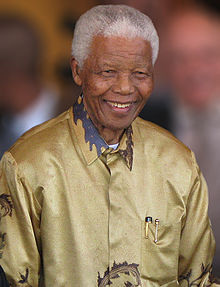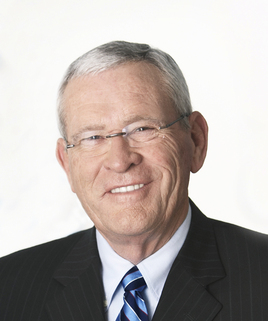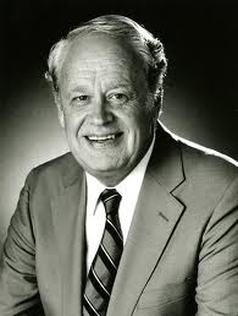|
"I am your servant. I do not come to you as a leader, as one above others." -Nelson Mandela
These words were uttered by Nelson Mandela several years ago, and serve as an important reminder of how one individual maintained his dignity and integrity while being incarcerated for 27 years as a political prisoner in South Africa. Mandela's own leadership journey continues to serve as an inspiration to people around the world. His ability to rise above the inhumane treatment from his jailers and others in positions of power at the time reflect authentic leadership, as he has a lot of compassion and heart. This also shows how he possesses the trait of conscientiousness from the trait approach and emotional intelligence because he in concerned for others around him. |
|
GM's Ed Whitacre
Only a year ago, General Motors emerged from bankruptcy. What a difference a year has made! GM is now solidly profitable, growing its revenues once again, retooling its lineup of automobiles, and enabling the U.S. government to recoup its bailout investment. Ed Whitacre’s remarkable leadership rapidly turned around GM. His one-year tenure marked a dramatic shift in the old way of doing business, as the days of redundant bureaucracy and disjointed innovation quickly ceased. Whitacre abandoned GM’s moribund committee system that protected executives from being accountable for results, and made clear, decisive decisions while challenging people to move much faster. Ed Whitacre proved himself as an authentic leader through his deep personal values and convictions. This behavior built credibility and gained the trust and respect of his followers. When supervisors/managers build networks of collaborative relationships with followers and encourage diverse viewpoints, they lead in a manner that followers recognize and describe as authentic. Ed Whitacre is also very intelligent and shows his sociability trait when he leads his followers. These traits, seen in the trait approach, LMX, and path-goal theory show that Whitacre is a true leader. |
|
Winston Wallin
Another role model is Winston Wallin. Now in his mid-80s, Win is former CEO of Medtronic. He had three distinguished careers at Pillsbury, Medtronic, and the University of Minnesota. As a board member, Win made major contributions to the success of Cargill and Norwest Bank (now Wells Fargo). But his greatest legacy may be the Wallin Education Scholars, a program that enables thousands of high school students to attend colleges. Win retired from Medtronic in 1991, but he certainly didn’t retire from life. In addition to chairing Medtronic’s board, he joined five corporate boards where he provided invaluable advice. He also answered UM President Nils Hasselmo’s request to help turn around its struggling health sciences area. In the 1990s, Win and his wife, Maxine, formed the Wallin Foundation, setting aside a major proportion of their gains from Medtronic stock. More than 3,000 students have benefited from $26 million in scholarships. Win Wallin chose to take responsibility for personal freedom along with obligations to his organization and community in order to better himself and others that surrounded him. Aspiring young leaders would do well to look to Win Wallin for a model of authentic leader and sustainable success, as he demonstrates a passion and purpose for education. This also shows how he is a servant leader, with the moral development to put followers before everything else by providing these scholarships. |



